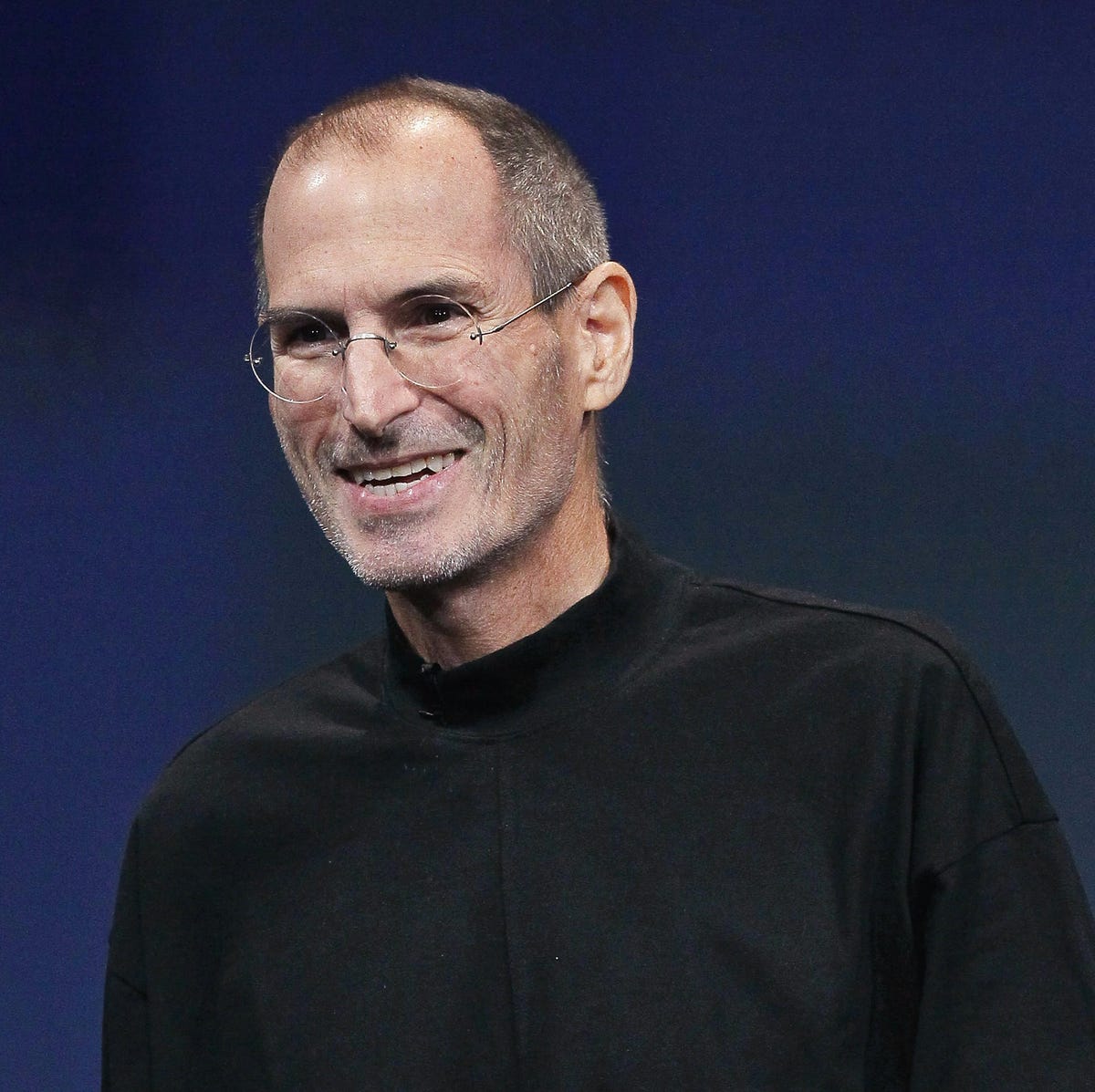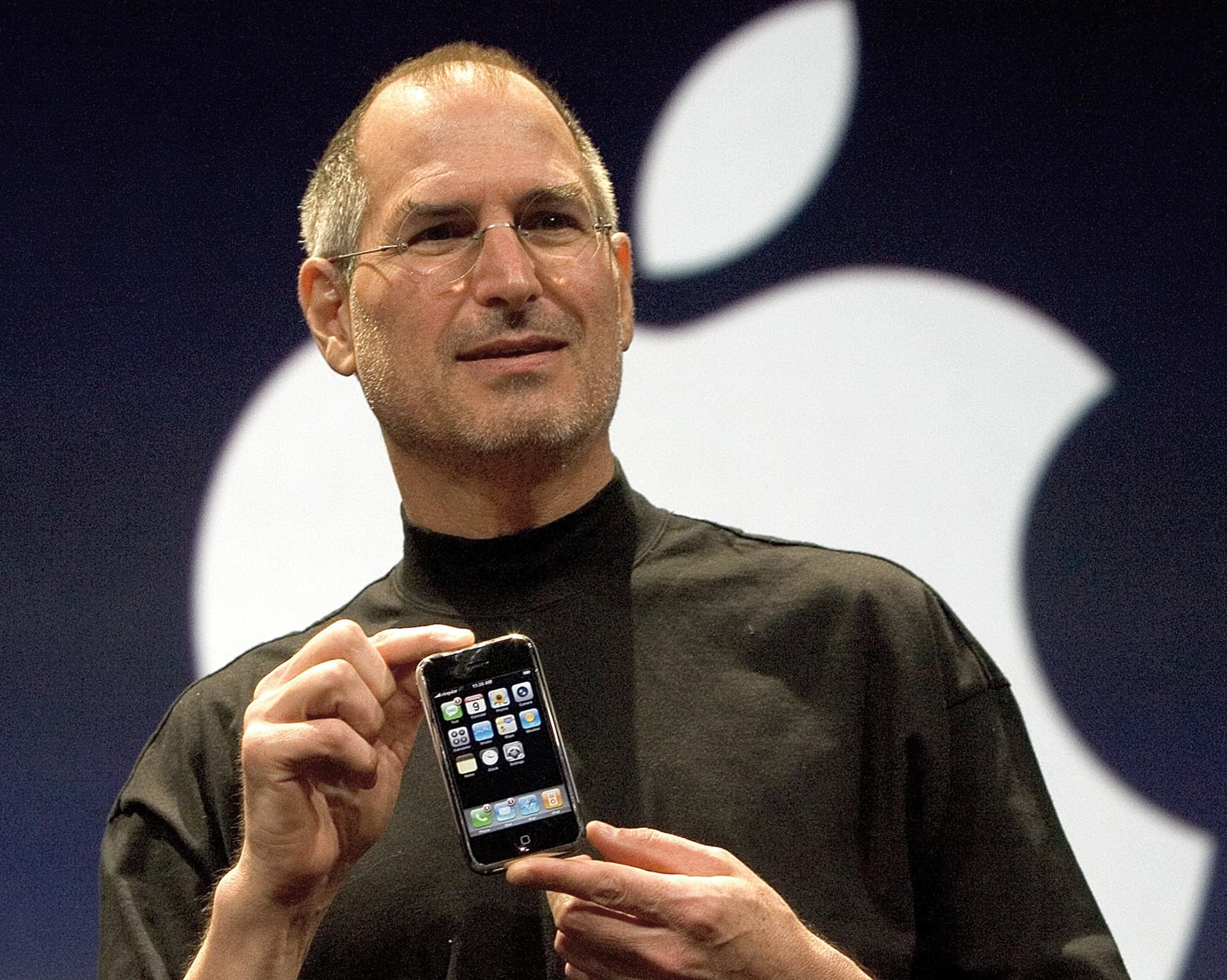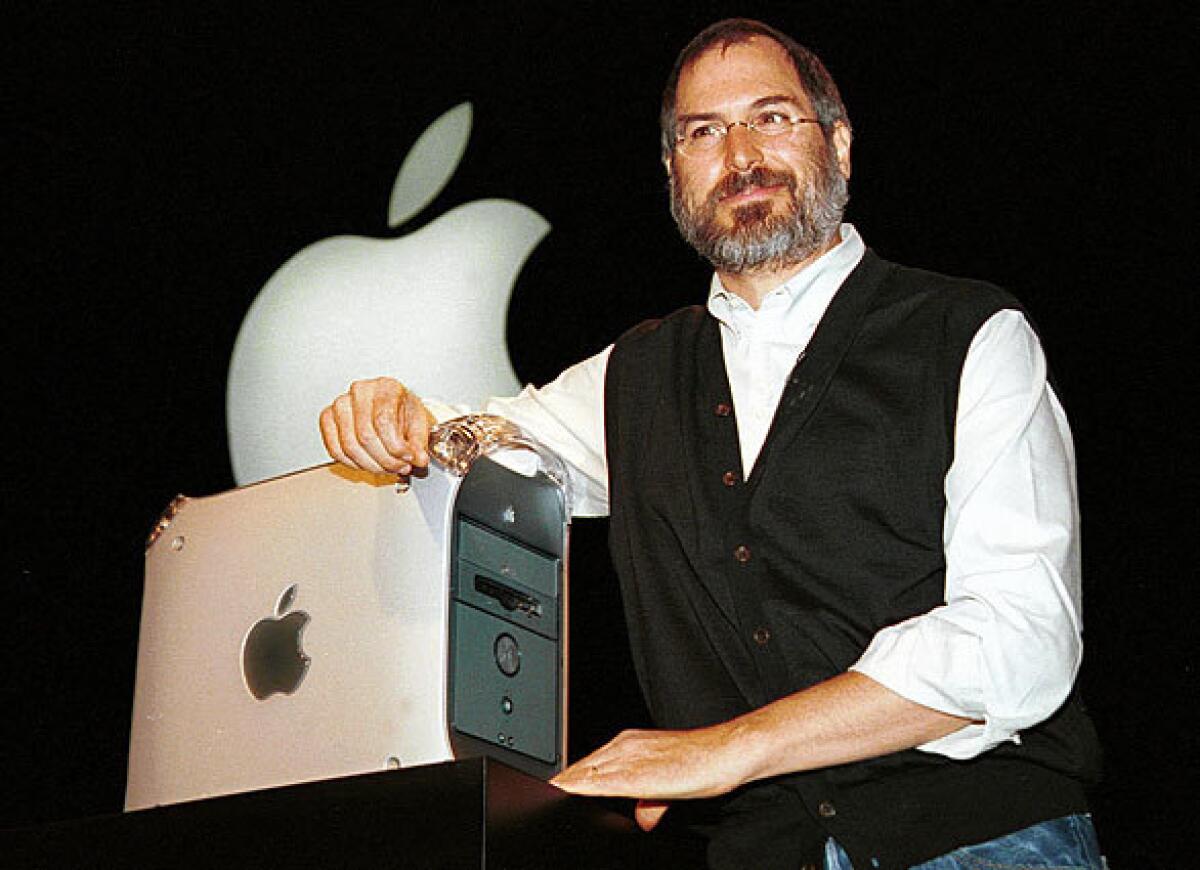Steve Jobs: A Visionary's Journey in 1500 Words
 Steve Jobs, the co-founder of Apple Inc., remains one of the most iconic figures in the history of technology and innovation. His visionary leadership, relentless pursuit of excellence, and unwavering commitment to design aesthetics have left an indelible mark on the world. In this exploration, we delve into the complex and inspiring journey of Steve Jobs, tracing his rise from a college dropout to a revolutionary force in the realm of consumer electronics and beyond.
Steve Jobs, the co-founder of Apple Inc., remains one of the most iconic figures in the history of technology and innovation. His visionary leadership, relentless pursuit of excellence, and unwavering commitment to design aesthetics have left an indelible mark on the world. In this exploration, we delve into the complex and inspiring journey of Steve Jobs, tracing his rise from a college dropout to a revolutionary force in the realm of consumer electronics and beyond.
Born on February 24, 1955, in San Francisco, California, Steve Jobs was adopted by Paul and Clara Jobs. Growing up in Silicon Valley during a time of technological ferment, Jobs developed an early fascination with electronics and computers. His passion for tinkering with gadgets and exploring new possibilities foreshadowed the entrepreneurial spirit that would define his later endeavors.
In 1976, Jobs co-founded Apple Computer, Inc. alongside Steve Wozniak and Ronald Wayne in the Jobs family garage. Their vision was to democratize computing power and empower individuals through user-friendly technology. The release of the Apple I and, later, the Apple II computers revolutionized the personal computing industry, propelling Apple to the forefront of innovation and establishing Jobs as a visionary leader.
However, Jobs' tenure at Apple was not without its challenges. In 1985, after a power struggle with the company's board of directors, he was ousted from his role as CEO. Undeterred, Jobs embarked on a period of introspection and reinvention, founding NeXT Computer and Pixar Animation Studios. While NeXT struggled to gain traction in the competitive computer market, Pixar thrived under Jobs' leadership, producing a string of critically acclaimed and commercially successful animated films.
In 1997, Apple acquired NeXT, bringing Jobs back into the fold as an advisor. His return marked a turning point for the company, which was struggling amidst declining sales and a lack of direction. Within a year, Jobs was appointed CEO, and he wasted no time in implementing a bold turnaround strategy. Under his guidance, Apple underwent a remarkable transformation, reimagining itself as a purveyor of premium consumer electronics and design-driven innovation.The launch of iconic products such as the iMac, iPod, iPhone, and iPad cemented Apple's reputation as a trailblazer in the tech industry. Jobs' keen sense of aesthetics, coupled with a relentless focus on simplicity and usability, set Apple apart from its competitors and captured the imaginations of consumers worldwide. His famous mantra, "think different," encapsulated Apple's ethos of challenging the status quo and pushing the boundaries of what was possible.
Yet, Jobs' leadership style was not without its detractors. His legendary perfectionism and demanding demeanor earned him a reputation for being difficult to work with. His uncompromising standards and insistence on maintaining strict control over every aspect of Apple's products often clashed with the realities of collaborative teamwork and corporate governance. Nevertheless, his singular vision and uncompromising commitment to excellence propelled Apple to unprecedented heights of success.
Beyond the realm of technology, Jobs' influence extended to various facets of popular culture and society. His iconic product launches, characterized by theatrical flair and meticulous attention to detail, became the stuff of legend. The "reality distortion field," a term coined to describe Jobs' ability to inspire and persuade through sheer force of personality, underscored his ability to captivate audiences and rally his team towards achieving seemingly impossible goals. Moreover, Jobs' impact on design aesthetics and consumer behavior reverberated far beyond the confines of the tech industry. His emphasis on sleek, minimalist design and intuitive user interfaces influenced a generation of designers and creatives across disciplines. The "Apple effect," characterized by a reverence for elegance and simplicity, permeated the cultural zeitgeist and reshaped consumer expectations for products and experiences.
Moreover, Jobs' impact on design aesthetics and consumer behavior reverberated far beyond the confines of the tech industry. His emphasis on sleek, minimalist design and intuitive user interfaces influenced a generation of designers and creatives across disciplines. The "Apple effect," characterized by a reverence for elegance and simplicity, permeated the cultural zeitgeist and reshaped consumer expectations for products and experiences.
Yet, for all his success and acclaim, Jobs' journey was marked by setbacks and struggles. His battle with pancreatic cancer, which was diagnosed in 2003, cast a shadow over his later years and forced him to confront his own mortality. Jobs' health challenges underscored the fragility of life and the importance of prioritizing what truly matters. Despite his illness, he remained actively involved in leading Apple until his resignation as CEO in 2011, just months before his death.
In the years since his passing, Jobs' legacy has continued to loom large in the collective imagination. His visionary leadership and enduring impact on technology, design, and business innovation serve as a testament to the power of bold ideas and unwavering determination. The "Steve Jobs effect," characterized by a relentless pursuit of excellence and a refusal to settle for mediocrity, continues to inspire entrepreneurs, innovators, and dreamers around the world.
Steve Jobs' journey is a testament to the transformative power of vision, passion, and perseverance. From humble beginnings to global icon, he defied convention and reshaped the landscape of technology and design in profound ways. His legacy serves as a beacon of inspiration for generations to come, reminding us that the pursuit of greatness is not just about achieving success but about embracing failure, embracing innovation, and embracing the journey of discovery. Steve Jobs' legacy extends far beyond his contributions to technology and design. His relentless pursuit of excellence and uncompromising commitment to innovation serve as a blueprint for aspiring entrepreneurs and leaders across industries. Jobs' ability to envision the future and drive his team towards realizing that vision remains a source of inspiration for those seeking to make a meaningful impact on the world.
Steve Jobs' legacy extends far beyond his contributions to technology and design. His relentless pursuit of excellence and uncompromising commitment to innovation serve as a blueprint for aspiring entrepreneurs and leaders across industries. Jobs' ability to envision the future and drive his team towards realizing that vision remains a source of inspiration for those seeking to make a meaningful impact on the world.
Moreover, Jobs' emphasis on the intersection of technology and the humanities underscores the importance of empathy, creativity, and human-centered design in the digital age. He believed that technology should serve as a tool for enhancing human experiences and empowering individuals to unleash their full potential. This humanistic approach to innovation continues to resonate in an era defined by rapid technological advancement and societal transformation.
Furthermore, Jobs' enduring influence extends to the realm of corporate culture and organizational leadership. His emphasis on fostering a culture of creativity, collaboration, and risk-taking within Apple set the stage for the company's success and longevity. Jobs understood the value of surrounding himself with exceptionally talented individuals who shared his passion for excellence and shared his vision for the future. His ability to inspire and motivate his team towards achieving audacious goals exemplifies the transformative power of effective leadership.
Moreover, Jobs' approach to innovation has sparked debates about the ethical implications of technological disruption and the concentration of power in the hands of a select few. As the digital landscape continues to evolve, questions about data privacy, algorithmic bias, and the societal impact of technology loom large. Jobs' legacy serves as a reminder of the ethical responsibilities that accompany technological advancement and the importance of balancing innovation with accountability.
In reflecting on Steve Jobs' legacy, it becomes evident that his impact transcends the boundaries of industry and time. His relentless pursuit of excellence, unwavering commitment to innovation, and profound influence on culture and society have left an indelible mark on the world. Jobs' journey from a college dropout to a global icon epitomizes the transformative power of passion, vision, and perseverance. As we navigate the complexities of the digital age, the lessons learned from Steve Jobs' remarkable life serve as a guiding light for those who dare to dream, disrupt, and redefine what is possible.






































